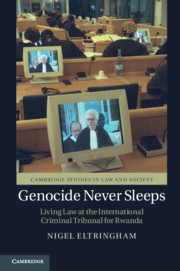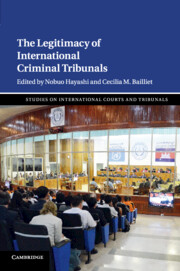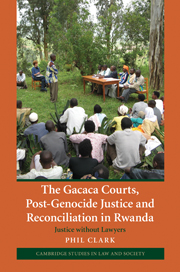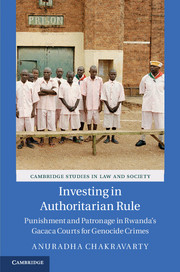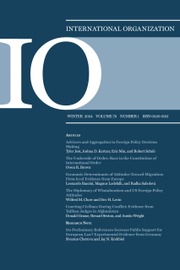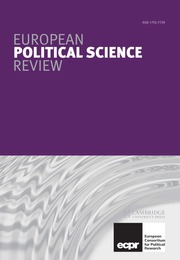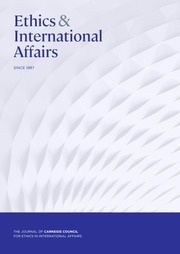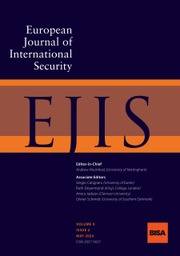Genocide Never Sleeps
Living Law at the International Criminal Tribunal for Rwanda
Part of Cambridge Studies in Law and Society
- Author: Nigel Eltringham, University of Sussex
- Date Published: July 2021
- availability: Available
- format: Paperback
- isbn: 9781108707398
Paperback
Other available formats:
Hardback, eBook
Looking for an inspection copy?
This title is not currently available on inspection
-
Accounts of international criminal courts have tended to consist of reflections on abstract legal texts, on judgements and trial transcripts. Genocide Never Sleeps, based on ethnographic research at the International Criminal Tribunal for Rwanda (ICTR), provides an alternative account, describing a messy, flawed human process in which legal practitioners faced with novel challenges sought to reconfigure long-standing habits and opinions while maintaining a commitment to 'justice'. From the challenges of simultaneous translation to collaborating with colleagues from different legal traditions, legal practitioners were forced to scrutinise that which normally remains assumed in domestic law. By providing an account of this process, Genocide Never Sleeps not only provides a unique insight into the exceptional nature of the ad hoc, improvised ICTR and the day-to-day practice of international criminal justice, but also holds up for fresh inspection much that is naturalised and assumed in unexceptional, domestic legal processes.
Read more- Provides a detailed record of the International Criminal Tribunal for Rwanda (ICTR) which ceased operations in 2015
- Provides readers with an intimate account of the day-to-day internal workings of an international criminal court and the people who worked there
- Uses the exceptional nature of international criminal justice to reflect on the practice of law in general
Reviews & endorsements
'Overall, in full reverence to the old anthropological adage of making the familiar strange, Eltringham does a superb job of turning the site of international tribunals into an unfamiliar new terrain with fascinating insights to debate for anthropologists and legal scholars alike.' Senem Kaptan, Allegra Laboratory
Customer reviews
Not yet reviewed
Be the first to review
Review was not posted due to profanity
×Product details
- Date Published: July 2021
- format: Paperback
- isbn: 9781108707398
- length: 234 pages
- dimensions: 227 x 151 x 13 mm
- weight: 0.355kg
- contains: 10 b/w illus.
- availability: Available
Table of Contents
Introduction: judging the crime of crimes
1. 'When we walk out
what was it all about?'
2. 'Watching the fish in the goldfish bowl'
3. 'Who the hell cares how things are done in the old country'
4. 'They don't say what they mean or mean what they say'
5. 'We are not a truth commission'
Conclusion.
Sorry, this resource is locked
Please register or sign in to request access. If you are having problems accessing these resources please email [email protected]
Register Sign in» Proceed
You are now leaving the Cambridge University Press website. Your eBook purchase and download will be completed by our partner www.ebooks.com. Please see the permission section of the www.ebooks.com catalogue page for details of the print & copy limits on our eBooks.
Continue ×Are you sure you want to delete your account?
This cannot be undone.
Thank you for your feedback which will help us improve our service.
If you requested a response, we will make sure to get back to you shortly.
×
